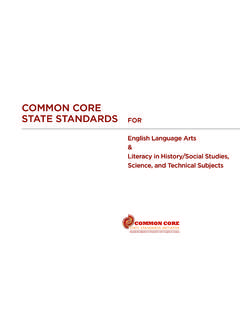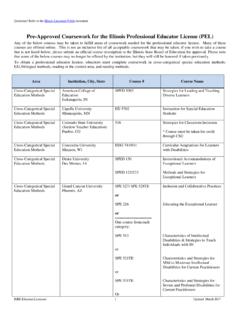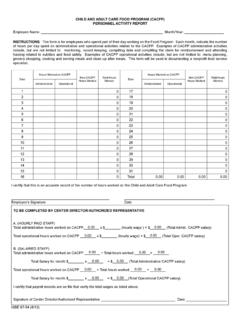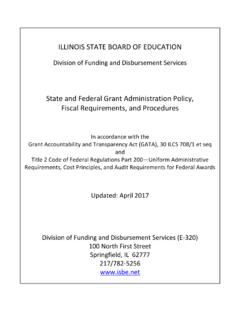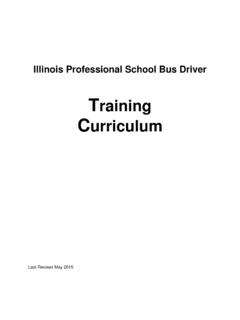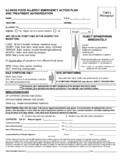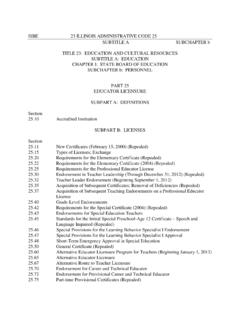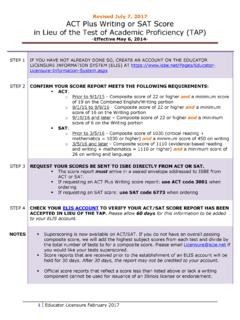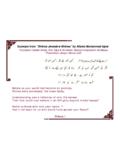Transcription of Intellectual Disabilities Fact Sheet
1 IntellectualDisabilitiesWWWWWhat Causes anhat Causes anhat Causes anhat Causes anhat Causes anIntellectual Disability? Intellectual Disability? Intellectual Disability? Intellectual Disability? Intellectual Disability?Doctors have found manycauses of Intellectual most common are: Genetic conditions. Sometimesan Intellectual disability iscaused by abnormal genesinherited from parents, errorswhen genes combine, or otherreasons. Examples of geneticconditions are Down syn-drome, fragile X syndrome,and phenylketonuria (PKU). Problems during pregnancy. Anintellectual disability canresult when the baby does not NICHCY Disability Fact Sheet #8 January 2011 Matthew s StoryMatthew s StoryMatthew s StoryMatthew s StoryMatthew s StoryMatt is 15 years old. BecauseMatt has an Intellectual disabil-ity, he has been receiving specialeducation services since elemen-tary school. These services havehelped him tremendously,because they are designed to fithis special learning year he started highschool.
2 He, his family, and theschool took a good hard look atwhat he wants to do whensecondary school is over. Doeshe want more education? A job?Does he have the skills he needsto live on his own?Answering these questionshas helped Matt and the schoolplan for the future. He s alwaysbeen interested in the outdoors,in plants, and especially in knows all the tree names andcan recognize them by theirleaves and bark. So this year he slearning about jobs like forestry,landscaping, and groundsmaintenance. Next year he hopesto get a part-time job. He slearning to use public transporta-tion, so he ll be able to get toand from the job. is theNational Dissemination Centerfor Children with Connecticut Avenue , DC (Voice / TTY) (Voice / an Intellectual disabil-ity makes it harder for Matt tolearn new things. He needs thingsto be very concrete. But he sdetermined. He wants to workoutside, maybe in the park serviceor in a greenhouse, and he sgetting ready!)
3 WWWWWhat hat hat hat hat are anare anare anare anare anIntellectual DisabilityIntellectual DisabilityIntellectual DisabilityIntellectual DisabilityIntellectual Disability????? Intellectual disability is a termused when a person has certainlimitations in mental functioningand in skills such as communicat-ing, taking care of him or herself,and social skills. These limitationswill cause a child to learn anddevelop more slowly than atypical with intellectualdisabilities (sometimes calledcognitive Disabilities or mentalretardation) may take longer tolearn to speak, walk, and take careof their personal needs such asdressing or eating. They are likelyto have trouble learning inschool. They will learn, but it willtake them longer. There may besome things they cannot Fact Sheet #8 (F S 8)develop inside the motherproperly. For example, theremay be a problem with theway the baby s cells divide asit grows. A woman whodrinks alcohol or gets aninfection like rubella duringpregnancy may also have ababy with an intellectualdisability.
4 Problems at birth. If a baby hasproblems during labor andbirth, such as not gettingenough oxygen, he or she mayhave an Intellectual disability. Health problems. Diseases likewhooping cough, the measles,or meningitis can causeintellectual Disabilities . Theycan also be caused by extrememalnutrition (not eatingright), not getting enoughmedical care, or by beingexposed to poisons like leador Intellectual disability isnot a disease. You can t catch anintellectual disability fromanyone. It s also not a type ofmental illness, like is no cure for intellectualdisabilities. However, mostchildren with an intellectualdisability can learn to do manythings. It just takes them moretime and effort than Common areHow Common areHow Common areHow Common areHow Common areIntellectual Disabilities ? Intellectual Disabilities ? Intellectual Disabilities ? Intellectual Disabilities ? Intellectual Disabilities ? Intellectual disability is themost common Approximately people in the UnitedStates have an More than 545,000children (ages 6-21) have somelevel of Intellectual disability andreceive special education servicesin public school under thiscategory in IDEA, the nation sspecial education In fact, 1in every 10 children who needspecial education have someform of Intellectual are the Signs ofhat are the Signs ofhat are the Signs ofhat are the Signs ofhat are the Signs of Intellectual Disability?
5 Intellectual Disability? Intellectual Disability? Intellectual Disability? Intellectual Disability?There are many signs of anintellectual disability. For ex-ample, children with an intellec-tual disability may: sit up, crawl, or walk laterthan other children; learn to talk later, or havetrouble speaking, find it hard to rememberthings, not understand how to payfor things, have trouble understandingsocial rules, have trouble seeing theconsequences of their actions, have trouble solving prob-lems, and/or have trouble are IntellectualHow are IntellectualHow are IntellectualHow are IntellectualHow are IntellectualDisabilities Diagnosed? Disabilities Diagnosed? Disabilities Diagnosed? Disabilities Diagnosed? Disabilities Diagnosed? Intellectual Disabilities arediagnosed by looking at twomain things. These are: the ability of a person s brainto learn, think, solve prob-lems, and make sense of theworld (called IQ or intellectualfunctioning); and whether the person has theskills he or she needs to liveindependently (called adaptivebehavior, or adaptive function-ing).
6 Intellectual functioning, orIQ, is usually measured by a testcalled an IQ test. The averagescore is 100. People scoringbelow 70 to 75 are thought tohave an Intellectual disability. Tomeasure adaptive behavior,professionals look at what achild can do in comparison toother children of his or her skills are important toadaptive behavior. These are: daily living skills, such asgetting dressed, going to thebathroom, and feeding one sself; communication skills, such asunderstanding what is saidand being able to answer; social skills with peers, familymembers, adults, and diagnose an intellectualdisability, professionals look atthe person s mental abilities (IQ)and his or her adaptive : 2 Intellectual Disabilities (FS8)Both of these are highlighted inthe definition of this disability inthe box on this page. Thisdefinition comes from theIndividuals with DisabilitiesEducation Act (IDEA).
7 IDEA isthe federal law that guides howearly intervention and specialeducation services are providedto infants, toddlers, children, andyouth with services to helpindividuals with intellectualdisabilities has led to a newunderstanding of how we definethe term. After the initial diagno-sis is made, we look at a person sstrengths and weaknesses. Wealso look at how much supportor help the person needs to getalong at home, in school, and inthe community. This approachgives a realistic picture of eachindividual. It also recognizes thatthe picture can change. As theperson grows and learns, his orher ability to get along in theworld grows as forHelp forHelp forHelp forHelp forBabies and TBabies and TBabies and TBabies and TBabies and ToddlersoddlersoddlersoddlersoddlersWhen a baby is born with anintellectual disability, his or herparents should know that there sa lot of help available andimmediately. Shortly after thediagnosis of ID is confirmed,parents will want to get in touchwith the early interventionsystem in their community.
8 We lltell you how in a intervention is a systemof services designed to helpinfants and toddlers with dis-abilities (until their 3rd birthday)and their families. It s mandatedby IDEA. Staff work with thechild s family to develop what isknown as an Individualized FamilyServices Plan, or IFSP. The IFSP will describe the child s uniqueneeds as well as the services he orshe will receive to address thoseneeds. The IFSP will also empha-size the unique needs of thefamily, so that parents and otherfamily members will know howto help their young child withintellectual disability. Earlyintervention services may beprovided on a sliding-fee basis,meaning that the costs to thefamily will depend upon access early interventionservices in your area, consultNICHCY s State Resource Sheet foryour state. It s available online at: , you ll find a listing forearly intervention under the firstsection, State Agencies. Theagency listed will be able to putyou in contact with the earlyintervention program in learn more about earlyintervention, including how towrite the IFSP, visit NICHCY at: forHelp forHelp forHelp forHelp forSchool-Aged ChildrenSchool-Aged ChildrenSchool-Aged ChildrenSchool-Aged ChildrenSchool-Aged ChildrenJust as IDEA requires thatearly intervention be madeavailable to babies and toddlerswith Disabilities , it requires thatspecial education and relatedservices be made available freeof charge to every eligible childwith a disability, includingpreschoolers (ages 3-21).
9 Theseservices are specially designed toaddress the child s individualneeds associated with the dis-ability in this case, an intellec-tual staff will work withthe child s parents to develop anIndividualized Education Program,or IEP. The IEP is similar to anIFSP. It describes the child sunique needs and the servicesthat have been designed to meetthose needs. Special educationand related services are providedat no cost to : 3 Intellectual Disabilities (FS8)Definition of Intellectual Disability Definition of Intellectual Disability Definition of Intellectual Disability Definition of Intellectual Disability Definition of Intellectual Disability under IDEA under IDEA under IDEA under IDEA under IDEAU ntil Rosa s Law was signed into law by President Obama inOctober 2010, IDEA used the term mental retardation insteadof Intellectual disability. Rosa s Law changed the term to beused in future to Intellectual disability.
10 The definition itself,however, did not change. Accordingly, Intellectual disability isdefined ..significantly subaverage general Intellectual functioning,existing concurrently with deficits in adaptive behavior andmanifested during the developmental period, that adverselyaffects a child s educational performance. [34 CFR (c)(6)]NICHCY: 4 Intellectual Disabilities (FS8)To access special educationservices for a school-aged childin your area, get in touch withyour local public school the elementary school inyour neighborhood is an excel- lent place to is a lot to know aboutthe special education process,much of which you can learn atNICHCY, which offers a widerange of publications on thetopic. Enter our special educa-tion information at: child with an intellectualdisability can do well in schoolbut is likely to need the individu-alized help that s available asspecial education and relatedservices.
